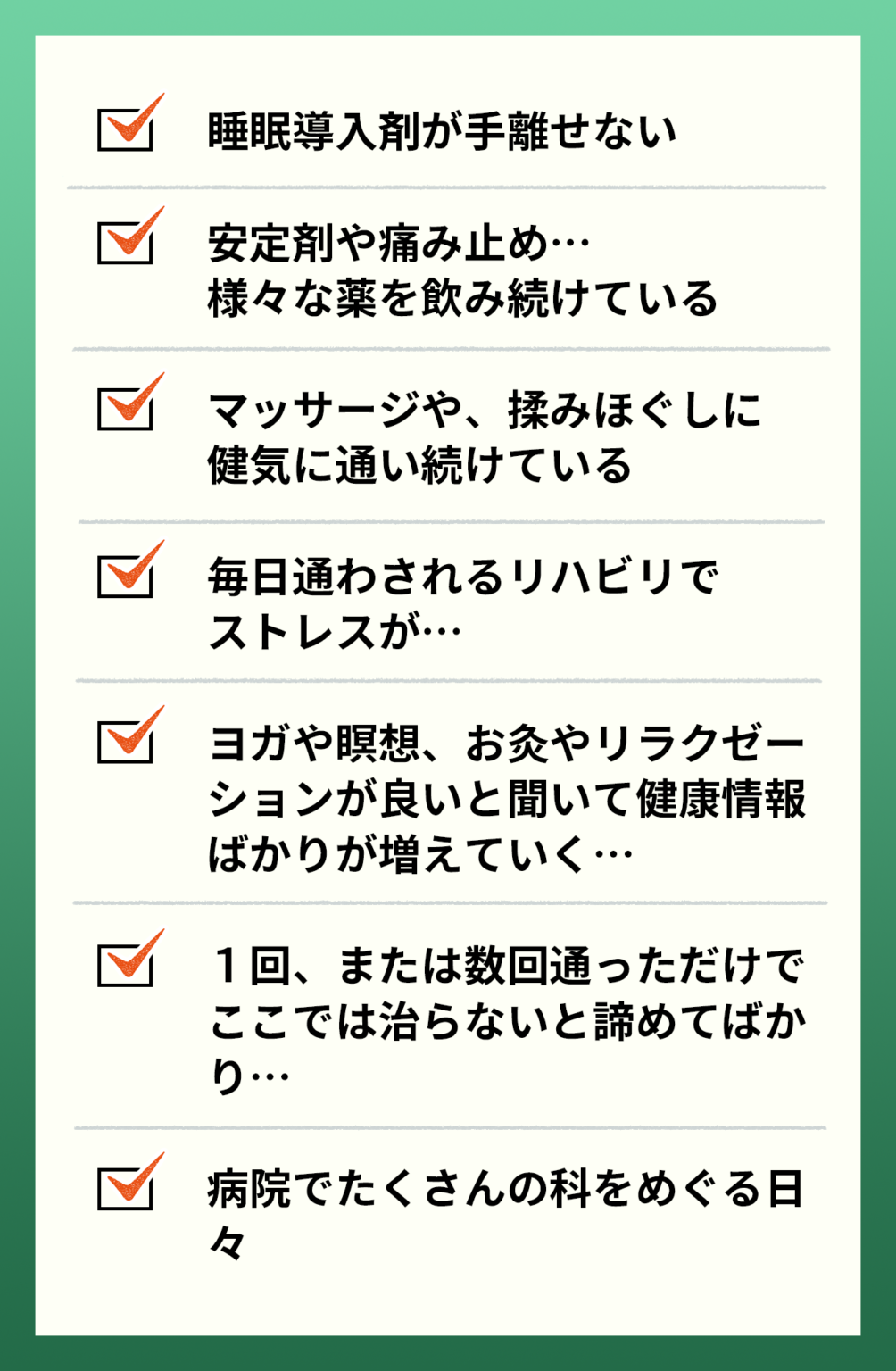{How {Age Affects} {The Impact of} Recovery from {Pain Management|Chro…
페이지 정보
작성자 Suzette 작성일 25-05-26 04:14 조회 4 댓글 0본문
 As we grow older, our bodies go through a series of physical changes and alterations that can affect our ability to recover from pain and discomfort. Our bodies are continuously experiencing frequent stress, but our youthful years are typically more resilient. Research indicates that several factors come into play when it comes to pain recovery and aging.
As we grow older, our bodies go through a series of physical changes and alterations that can affect our ability to recover from pain and discomfort. Our bodies are continuously experiencing frequent stress, but our youthful years are typically more resilient. Research indicates that several factors come into play when it comes to pain recovery and aging.One significant factor is the decline in muscle mass and strength that happens with age. As we age, 津市 自律神経 our muscle mass dwindles, making it more challenging to enjoy the same level of mobility and flexibility we had in our younger years. This decrease in muscle mass can make it more harder to engage in physical activities, such as exercise and stretching, that can aid in pain management.
Additionally, our bones become less dense, making them more susceptible to troublesome consequences, and more taking longer to heal.
The circulatory system also plays a crucial role in chronic pain management. As we grow older, our blood vessels become less flexible, reducing the flow of essential resources to damaged tissues. This can result in prolonged healing periods, as the body takes longer to repair damaged tissues.
Another essential consideration is the role of inflammation in pain recovery and healing. Chronic inflammation is a common occurrence with aging, as our bodies try to fight off oxidative stress and other environmental factors. While some inflammation is beneficial for health, excessive and chronic inflammation can exacerbate pain and obstruct recovery and healing.
Our nervous system also experiences changes with age that can impact chronic pain management. The neural pathways that transmit pain signals become more responsive, making it more likely to experience pain even when it's not extreme. Furthermore, our body's natural pain relief mechanisms may weaken with age, leading to a heightened perception of pain.
Anxiety and emotional well-being play a significant role in chronic pain management as well. As we grow older, we may experience a greater sense loneliness and anxiety, all of which can intensify pain. Moreover, our response to stress can accelerate inflammation and make our bodies more vulnerable to pain.
In conclusion, age is a essential factor in chronic pain management, as our bodies undergo various changes that affect our physical abilities, flexibility, and pain-sensing abilities. While it's not practical to reverse the effects of aging, there are steps we can take to reduce their impact. Engaging in regular physical activity and mobilization, managing stress and staying connected with others can all help improve our ability to recover from pain as we age.
It's also essential to consult with a healthcare professional to develop a comprehensive plan for pain management and recovery. This may include medications and other interventions tailored to address the specific pain challenges you're facing. By working with a qualified healthcare provider and adopting a healthy lifestyle, you can take the first steps towards regaining control over your pain and improving your recovery outcomes as you age.
- 이전글 Congratulations! Your Targeted Traffic That Converts Is (Are) About To Stop Being Relevant
- 다음글 Why Children Love Football So Much
댓글목록 0
등록된 댓글이 없습니다.
